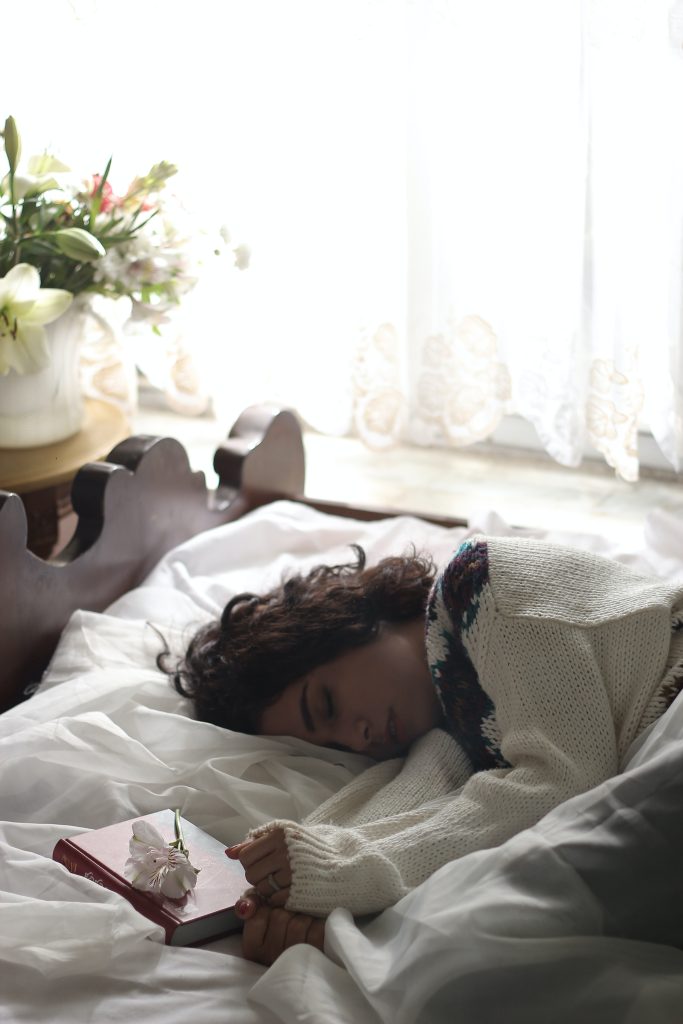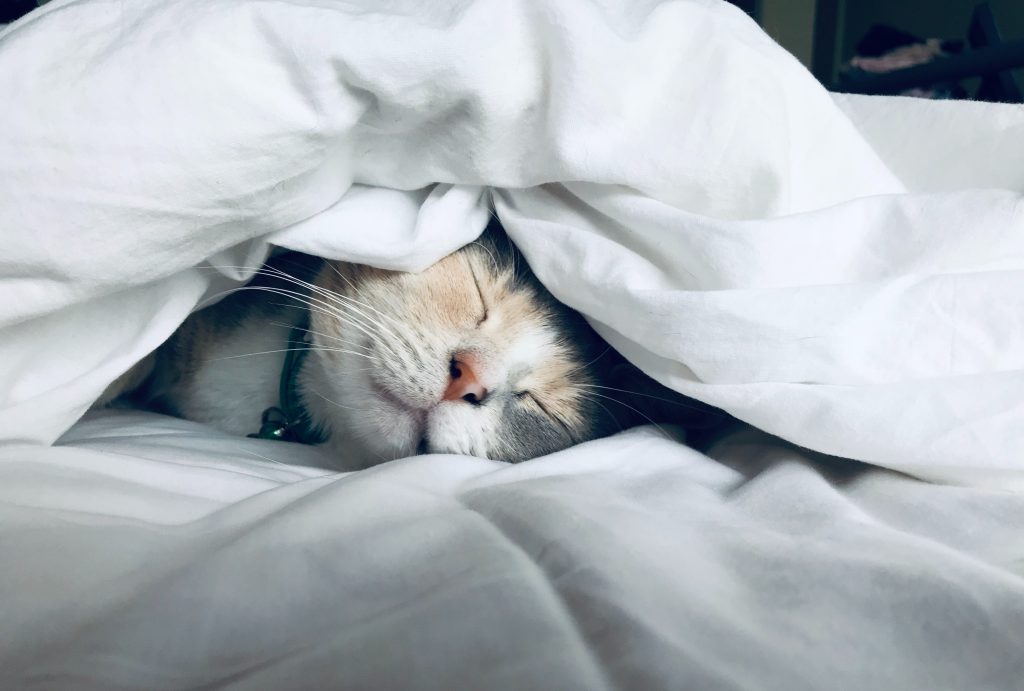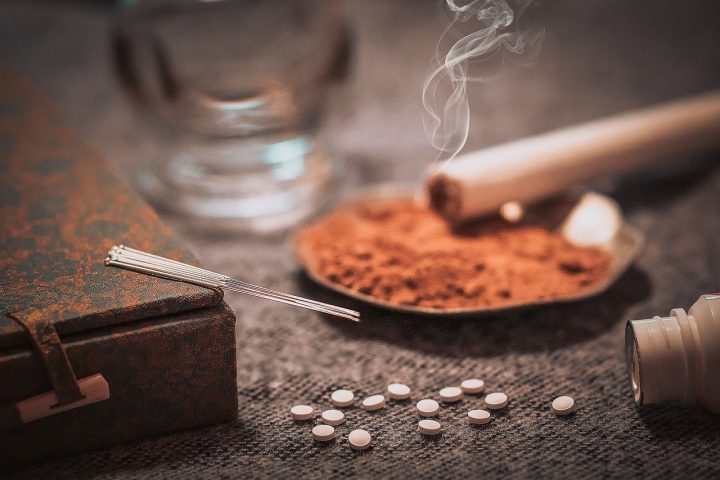Need a little more help getting a good night sleep? First let’s talk about the importance of sleep and then lets’ go through some important tips on how to get good sleep.
The importance of sleep is completely underestimated, with some believing you don’t need much, and others stating you need more than 8 hours at least. The truth is, to achieve your optimum health, you need to be sleeping (good) for at least 8 hours every night.
The CIA are known to use sleep deprivation as a torture technique, and used it on detainees after the 9/11 incident. For those suffering insomnia, it is “Torture”. Lack of sleep has severe consequences on the mental and physical components of the body including immune function reduction, hallucinations, legathy, apathy, irritability, and lack of cognisance, and yet all around the world, people suffer from lack of sleep or insomnia.
We spend approxiamately ⅓ of our lives sleeping, so it is an aspect of our life that we can not merely glance over. Sleep is absolutely essential to a healthy human being.
So what happens when we sleep, and what elixir of youth and rejuvenation is initiated? In order to understand this, we must look at what happens when we enter to sleep cycle.
In response to darkening light, as received through our eyes, the hypothalamus stimulates the pineal gland to release melatonin. Melatonin influences the circadian rhythms of the body to prepare itself for sleep. Melatonin also enhances GABA production. This is a neurotransmitter that relaxes the body and mind also in assisting the body to prepare for sleep.
As a result of the slowing mind, our brainwave frequencies start to drop from “beta” brain waves, or normal wakefulness, to “alpha brainwave” frequencies. This is the mode of calm relaxed state of mine.

As we drift off to sleep, the brainwaves further relax into “theta brainwave frequencies”, and we experience light sleep. Many people will go into this state, and it is like not knowing if you are alseep or not, or the kind of sleep you can easily awaken from. If you are conscious at this point in time (through meditation), you may start to see images randomly appearing, or start hearing things. It is like a portal that opens to a different dimension. This kind of sleep is considered non-REM sleep, as the eyes do not move during this level of sleep.
Ideally, we fall deeper into sleep to reach “Delta brainwave” frequencies, which is very long brainwave frequencies. This in “Deep Sleep”. When a person reached this state, it is hard to wake them up, and if you do, they are very groggy and may not know who they are or where they are.
Delta brain wave frequency is where “growth hormone” is produced. Growth hormone assists the body in repairing and regenerating itself. It is very important to get into this state for the health and wellbeing of your body.
After a short period of time, the activity of the brain starts to rise, and we may enter the “Rapid eye movement“ part of our sleep cycle. This is where the body is physically paralysed, but the eyes are moving rapidly under the eyelids. This part of our sleep is where we tend to dream, although it is possible in other states of sleep as well.
REM sleep is critical for our health and wellbeing. This is the part of our sleep cycle, where the mind consolidates learning, and integrates memory. New neur-links are created as we process what has been learned through our waking life.
Have you ever studied for an exam late at night, had a sleep, and then noticed the amazing recall you have the next day from cramming? I certainly have. I do not recommend this way of learning due to the stress it induces, but also because this method is good for short term memory, but it does not necessarily commit what is learned to long term memory.

Understanding sleep from a Chinese perspective:
Your conscious mind must retire and rest from its day to day activities every night. In Chinese philosophy, the “Shen” is responsible conceptual thinking, conscious thought, and awareness. When we sleep, the Shen returns to the Heart organ to be rejuvenated. Our conscious mind is turned off, and we enter the realms of the unconscious.
The ability of the Shen to return to the heart at night depends largely on the quality and quantity of the blood in the body. Hot blood or deficient blood are two common reasons the Shen cannot return, and they in turn are influenced by our diets, lifestyles and emotions.
The Hun which is another aspect of our spirit must also return to its associated organ to be rejuvenated during sleep.
The Hun is the ethereal soul of the body according to Chinese traditions. It is the intangible aspect of ourselves that relates to our visions, dreams and imagination. A well balanced hun allows us to see the greater picture in life, to give you purpose and meaning, as well as assists you to orient yourself in the direction that best suits you. As you can imagine, it has a strong influence on the quality of our sleep.
The hun resides in the eyes during the day and helps us see how we can act in ways that better serve our life purpose. The hun descends to the Liver at night time where it organises our dreams.
Our dreams are important for the assimilation of new information, for learning, and as a mechanism between the conscious and subconscious mind. In Chinese philosophy and in many traditions, dreams can also provide a link between the super conscious, the collective conscious, and the individual.
Have you ever had insight during your sleep, come up with new ideas, saw a scenario from a different perspective, or even had a prophetic dream? Your hun has been busy cleaning up your psyche!!
Interestingly, REM sleep and the function of the hun in Chinese philosophy are congruent in nature, in that they both function to consolidate what is learned, and assimilate information from the subconscious and conscious mind.

How To Get Good Quality Sleep:
The hun returns to the Liver at night. If you are overheated, have toxic emotions, or you Liver blood and Yin is weak, the hun will be agitated. You may suffer insomnia, light sleep, or dream disturbed sleep.
The Shen must also return to the heart, and it relies on the blood to anchor it at night. If you are blood deficient, you are more likely to suffer sleep issues. Have you ever noticed that it is commonly known that those with low iron may suffer from insomnia?
Here are some tips to build good Yin and Blood to ensure a good nights sleep:
- Make sure in order to build yin and blood to eat good quality foods, which supply micronutrients. Eat the rainbow, with minimally processed foods, and good quality water. The plant kingdom offers phytonutrients and micronutrients in abundance. Additionally, most foods in this category are cooling and yin and blood building.
- Eliminate stimulants and overly heating foods and instead move towards bland foods which do not injure the blood or yin. For instance, too much coffee and alcohol are well known to stimulate the body.
- Emotions and stress which are running wild are damaging to the spirit and the soul. If this is the reason for the inability to sleep, you may want to look at underlying causes. Breathing exercises, mediation, and counselling may also assist.
- Do not overwork the body physically. Sometimes overwork may consume blood and yin. Have moderate exercise, but not too much that the body feels depleted.

Additional tips for sleeping:
- The ideal temperature for sleep is below about 18 degrees. Of course this is subjective, but the body will be less agitated at these temperatures.
- Do not watch blue light emitting devices before sleep. That’s right, that means getting off your phone before night time.
- Got some sunlight into your eyes. The sunlight resets your circadian rhythm when it enters your eyes, so your body clock knows when to retire for the night.
- Don’t eat a big meal or drink a lot of water just before bed. The body needs to rest, and having to digest when it is asleep can influence the quality of your sleep. Further, your bladder and kidneys will be working overtime if you drink a lot of water, leading you to make trips to the bathroom. This will break your sleep cycles and influence the quality of your sleep.
- Keep a fairly consistent routine of bed and waking up. This is to keep the circadian rhythm consistent.




